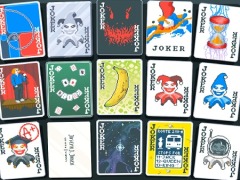2 Player Games
2 Player Games offer a unique interactive experience where two participants can engage either in head-to-head challenges or side-by-side teamwork. These games create a dynamic space where participants must adapt to the immediate actions of their opponents or partners. This dynamic is particularly evident in games like puzzle-solving challenges, where players either race to solve the puzzle first or must collaborate to piece together a solution. This environment fosters a deep sense of engagement as each player’s decision directly influences the game’s outcome.
Diverse Formats and Settings
The realm of 2 Player Games spans a multitude of settings and formats, appealing to a broad audience with varied tastes. For instance, digital adaptations of classic board games allow players to experience traditional games like backgammon and checkers through a new digital lens, often incorporating visual and audio elements that enhance the gameplay. Meanwhile, sports enthusiasts might gravitate towards virtual tennis or basketball games, which mimic the physical sports but require less physical space and can be played from any location.
These games are more than just a pastime; they serve as a conduit for enhancing interpersonal relationships. By requiring two players to engage directly, these games naturally promote a communicative atmosphere where players discuss strategies, negotiate, and share immediate reactions to game developments. Whether it’s through cooperating to build an empire in a strategy game or racing against each other in a high-speed car chase, the games encourage players to connect on multiple levels, bridging gaps and deepening relationships through shared digital experiences.
Cognitive Benefits and Skill Development
Participating in 2 Player Games is mentally stimulating and can significantly enhance cognitive skills such as strategic planning, quick decision-making, and spatial awareness. Players often find themselves needing to anticipate their partner’s or opponent’s moves, which requires a keen sense of observation and the ability to think several steps ahead. This makes the games intellectually challenging and aids in developing life skills that extend beyond the virtual world. Engaging regularly in such interactive and competitive formats can sharpen one’s mind, offering both fun and beneficial mental exercise.








